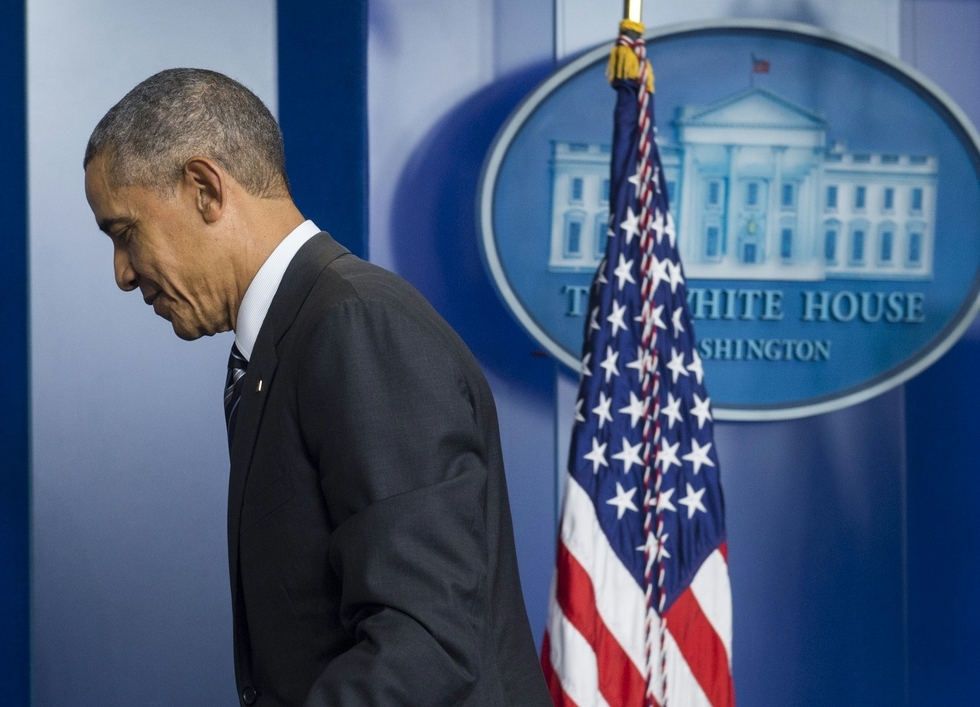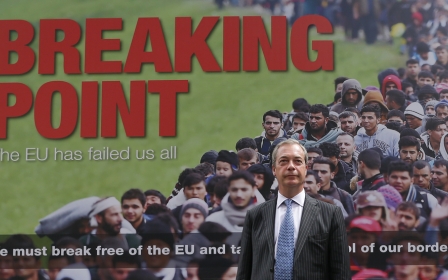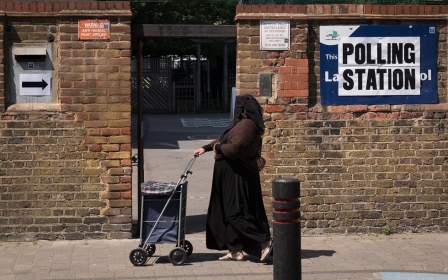ANALYSIS: Brexit damages US's 'special relationship' with UK

Britain's vote to leave the EU was a blow to one of the US's key alliances and a setback for its influence across Europe.
But can Barack Obama leverage what remains of the "special relationship" to smooth Britain's exit and limit the damage to Western security and the global economy?
The US president travelled to London during the referendum campaign to back his friend Prime Minister David Cameron's doomed campaign against Brexit.
And on Friday Obama quickly defended the "special relationship" with the UK, a phrase coined by Winston Churchill in 1946 after the allies' World War II victory.
“The special relationship between the United States and the United Kingdom is enduring, and the United Kingdom’s membership in NATO remains a vital cornerstone of US foreign, security, and economic policy,” Obama said in a news release.
“So too is our relationship with the European Union, which has done so much to promote stability, stimulate economic growth and foster the spread of democratic values and ideals across the continent and beyond.”
Nevertheless, Washington analysts were unanimous that the shock result was a huge setback for the alliance and for US interests, and urged Obama to help fix things.
A US senior state department official anonomously told the Guardian that the vote was "not the outcome that either of our governments wanted, but it’s democracy and so we’re moving on. We have to. It’s just too important not to. The relationship’s too important, the issues that we’re working with the UK on are too vital.
“You name it: Afghanistan, Ukraine, Syria, the Asia-Pacific region. The Brits are such a key partner on so many issues that it’s just too important to allow this to derail a lot of that cooperation.”
In the wake of the vote, Britain must negotiate its departure from the world's biggest trading bloc without triggering a domino effect of economic catastrophe.
The US stock market was also hammered on Friday.
“Today’s events open up a whole new level of uncertainty,” Adam Patti, chief executive of IndexIQ, told the New York Times. “It’s really a time to be very cautious.”
The Dow Jones industrial average fell 611 points or 3.4 percent in its worst drop in 10 months, the Standard & Poor’s 500 stock index fell 3.6 percent and Nasdaq declined 4.1 percent, its biggest drop since 2011.
Moody's Investors Service cut Britain's credit rating outlook to "negative" on Friday, saying that pulling out of the EU may dampen its economic prospects.
While retaining the country's overall rating at a high "Aa1", Moody's said that after the Brexit vote it expects the country's growth to slow, economic policy-making to suffer and the country's finances to weaken while it struggles through the details of the breakup.
"During the several years in which the UK will have to renegotiate its trade relations with the EU, Moody's expects heightened uncertainty, diminished confidence and lower spending and investment to result in weaker growth," it said.
"Over the longer term, should the UK not be able to secure a favorable alternative trade arrangement with the EU and other countries, the UK's growth prospects would be materially weaker than currently expected."
After speaking to Cameron on Friday, Obama said he was "confident that the UK is committed to an orderly transition out of the EU".
But European leaders have warned that they will not give London an easy ride, fearing a smooth Brexit would encourage other European powers to jump ship.
A stormy debate, however, would further disturb markets and divide US allies in Europe, according to Tom Wright of the Brookings Institution.
"In the last few weeks, European leaders have taken a tough line and said there won't be concessions, but that may change now that the vote has happened," he said.
"I do think the US position will almost certainly and correctly be to try to make this as smooth as possible."
Wright did not downplay the scale of the harm Brexit will do to trans-Atlantic cooperation, but said Obama could "mitigate" it by reaching out to France and Germany.
"The most important decisions will be taken in Berlin and in Paris," he told AFP in an interview.
"And if the US is going to engage these countries it will have to be at the leader level."
Nothing will be served by pushing the UK away or retaliating by diminishing the alliance - Tom Wright, Brookings Institution
There is a lot of anger in Washington at what experts see as Cameron's unnecessary gamble on a referendum, but most hope the alliance will survive.
"Nothing will be served by pushing the UK away or retaliating by diminishing the alliance," Wright said.
Jeffrey Rathke, a fellow of the Center for Strategic and International Studies, told AFP that the fundamentals of the alliance remain in place.
"The reason for the special relationship is basically because we have very similar interests and very similar ways of looking at the world," he said.
"However, if Britain's influence globally decreases then the US naturally has to find ways to compensate for that," he said.
"The US will have to beef up its engagement with key European partners."
This analysis was shared by Richard Haass, president of the Council on Foreign Relations, who told reporters that Brexit was a harsh blow for the US.
"The net result will be the special relationship will be that much less special," he said.
"This essentially is a cloud without a silver lining when it comes to the UK itself, when it comes to Europe or when it comes to the United States.
"On balance, this will diminish order within Europe and arguably beyond."
New MEE newsletter: Jerusalem Dispatch
Sign up to get the latest insights and analysis on Israel-Palestine, alongside Turkey Unpacked and other MEE newsletters
Middle East Eye delivers independent and unrivalled coverage and analysis of the Middle East, North Africa and beyond. To learn more about republishing this content and the associated fees, please fill out this form. More about MEE can be found here.




